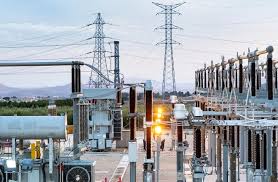Business
ECOWAS, AFD Commit €17.5m To Fight Fruit Flies
The Economic Community
of West African States ECOWAS and French Development Agency (AFD) have signed a 17.5 million Euros agreement to fight fruits flies in West Africa to improve fruit and vegetable growing and to reduce export losses.
This is contained in a statement by Georges Vanin, First Counsellor, Political Affairs and Communication of the Embassy of France in Abuja.
The statement said the agreement was aimed at improving food security and to increase income among small scale farmers in the West African sub-region.
“The West African horticulture sector contributes to the food balance of millions of consumers at the local and regional level.
“It represents an important source of foreign exchange and employment for low-income countries.
“Unfortunately, it continues to be handicapped by non-compliance with international phytosanitary standards in particular because of infestations of pulp by phytophagous flies.
“This causes heavy income losses for West African producer countries.
“The agreement, in the amount of 17.558 million EURO, signed between ECOWAS and AFD will enable the establishment of monitoring and fighting mechanisms against the infestation of orchards.”
The statement said the project would also support applied research in order to develop improved cultivation techniques and allow their dissemination in the member states.
It said the regional plan was being financed through an EU grant of 17 million Euros.
It added that the management of the grant was partly delegated to AFD, while AFD was also contributing 1.5 million Euros in grant to the project.
The statement said ECOWAS and its member states would contribute a total of 5 million Euros to the programme.
It said the President of ECOWAS Commission, Kadré Ouédraogo, lamented the damage caused by flies to fruit intended for export by West African countries.
“The damage caused by plant-feeding flies to fruit intended for international markets has for many years been recognised as a problem with a heavy economic and social impact at local, national and regional levels.
“Flies don’t know any border. This is what explains the orientation for a coordinated and concerted regional action,” the statement quoted Ouédraogo as saying.
Business
Abia Takes Over Electricity Supply In 8 LGAs

Business
‘Gas Shortages, Infrastructure Deficiency, Bane Of Power Sector Growth’

Business
NUPRC Blames Out Service Trunk Lines On Vandalism … As Rivers NUJ Promises Development Journalism

-

 News4 days ago
News4 days agoFG Bars MDAs From Dollar-Denominated Contracts
-

 Column4 days ago
Column4 days agoWhy Oil Prices Could See Significant Upside Shift
-

 Sports4 days ago
Sports4 days agoFEDUGAM: Committee Warn Against Fielding Mercenaries
-

 Aviation4 days ago
Aviation4 days agoAviation Professionals Want Agencies Boards’ Inauguration
-

 News4 days ago
News4 days agoUNIPORT Honours Wike, Names Convocation Arena After Him
-

 Rivers4 days ago
Rivers4 days agoDiobu Cult War: Suspect’s Confession Leads To Weapon Discovery
-

 News4 days ago
News4 days agoPresidency Hosts Digital Media Submit August 1
-

 Politics4 days ago
Politics4 days agoConstitution Review: Senate Vows To Address Citizens Concerns


